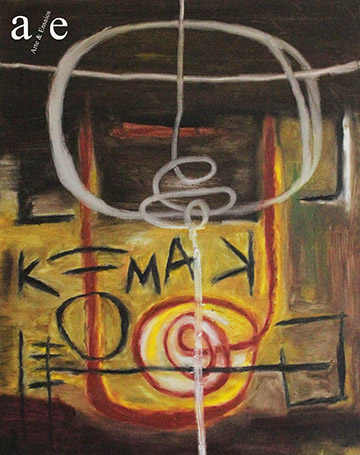Todos os demônios estão aqui: como a história visual da Revolução Haitiana falseia o sofrimento negro e sua morte / All the devils are here: how the visual history of the Haitian Revolution misrepresents Black suffering and death
DOI:
https://doi.org/10.37235/ae.n43.19Resumo
O ensaio investiga as representações da Revolução Haitiana, sobretudo imagens publicadas em livros e periódicos, que construíram um imaginário colonial da morte e do sofrimento negro, invertendo os termos da dominação racial − como se as maiores vítimas tivessem sido as pessoas brancas. Ao analisar gravuras de ampla circulação, Marlene L. Daut demonstra como essa construção estética bestializou e deturpou os significados da luta negra por sua própria liberdade. Aponta, por fim, para a importância de artistas contemporâneos que têm buscado retratar o heroísmo e a dor da população negra em contexto no qual permanecem as brutais violações de direitos humanos. Marlene L. Daut é professora de Estudos da Diáspora Africana no Carter G. Woodson Institute e no Programa de Estudos Americanos na Universidade da Virginia. É autora de Baron de Vastey and the origins of black Atlantic humanism (Palgrave, 2017) e Tropics of Haiti: race and the literary history of the Haitian Revolution in the Atlantic world, 1789-1865 (Liverpool, 2015). Publicado originalmente em Lapham’s Quartely, 14 de outubro de 2020.
Palavras-chave: Revolução Haitiana. Sofrimento negro. Racismo. Representações artísticas. Imaginário colonial.
Abstract
The essay investigates how representations of the Haitian Revolution, mostly images published in books and magazines, informed a colonial perception of Black death and suffering, by reversing the terms of racial domination − as if the great victims had been White people. By analyzing widespread illustrations, Dr. Marlene L. Daut demonstrates how this aesthetic construction bestialized and misrepresented the Black struggle for their own freedom. Finally, it points out the importance of contemporary artists who have sought to portray the heroism and pain of the Black population in a context in which brutal human rights violations remain. Marlene L. Daut is Professor of African Diaspora Studies in the Carter G. Woodson Institute and the Program in American Studies at the University of Virginia. She is the author of Baron de Vastey and the origins of Black Atlantic humanism (Palgrave, 2017) and Tropics of Haiti: race and the literary history of the Haitian Revolution in the Atlantic world, 1789-1865 (Liverpool, 2015). Originally published at Lapham’s Quartely, October 14, 2020.
Keywords: Haitian Revolution. Black suffering. Racism. Artistic representations. Colonial imaginary.
Downloads
Downloads
Publicado
Edição
Seção
Licença
Autores que publicam nesta revista concordam com os seguintes termos:- Autores mantém os direitos autorais e concedem à revista o direito de primeira publicação, com o trabalho simultaneamente licenciado sob a Licença Creative Commons Attribution que permite o compartilhamento do trabalho com reconhecimento da autoria e publicação inicial nesta revista.
- Autores têm autorização para assumir contratos adicionais separadamente, para distribuição não-exclusiva da versão do trabalho publicada nesta revista (ex.: publicar em repositório institucional ou como capítulo de livro), com reconhecimento de autoria e publicação inicial nesta revista.
- Autores têm permissão e são estimulados a publicar e distribuir seu trabalho online (ex.: em repositórios institucionais ou na sua página pessoal) a qualquer ponto antes ou durante o processo editorial, já que isso pode gerar alterações produtivas, bem como aumentar o impacto e a citação do trabalho publicado (Veja O Efeito do Acesso Livre).


